Inspiration and Spirituality
Yahya Ibrahim | My Lord, My Lord! But Do We Deserve an Answer?

Published
We have all been through it, at one point or another. Everything is copacetic. We couldn’t ask for too much more, and when we ask, somehow, we receive. Alhamdulillah, our quality of life is influx, but it certainly is not dreary or difficult. Simply, we are blessed and well off compared to many others. The needs are met and the wants are attainable and within reasonable reach.
Alhamdulillah.
And then it happens. A tempest is at hand but the heralding winds are calm. The outward signs all seem to indicate that, masha’Allah, “Life is good and will remain so for the foreseeable future.”
Keep supporting MuslimMatters for the sake of Allah
Alhamdulillah, we're at over 850 supporters. Help us get to 900 supporters this month. All it takes is a small gift from a reader like you to keep us going, for just $2 / month.
The Prophet (SAW) has taught us the best of deeds are those that done consistently, even if they are small. Click here to support MuslimMatters with a monthly donation of $2 per month. Set it and collect blessings from Allah (swt) for the khayr you're supporting without thinking about it.
We fail to see that fitnah – a divine tribulation, is upon us. Not cancer, death, tragedy or war; this fitnah is more sinister – inward. We substantiate “our” success and rationalize our providence as being entirely deserved. We overlook the multiplicity of our flaws and exaggerate the virtuousness of our life. We are blissfully unaware that we are much more distant from Al-Rahman (The Ever Merciful) than we assume.
The hallmark of this fitnah is an overestimation of our righteousness and underestimation of the All-Mighty’s Generosity and Mercy upon us, assuming that we deserve everything we have.
Silently, maybe even subconsciously, some make note of their successes and attribute it to what can only be, in their estimation, Divine approval of their way of life. Consequentially, our thankfulness (shukr), evidenced by way of worship diminishes and our life fades into a pattern that denies spiritual advance.
The Prophet (sal Allahu ‘alayhi wa sallam) would warn the companions:
“If you see Allah granting an individual everything they ask for at the same time you witness that same individual involved in sin, know that Allah is giving them time before they will be brought to account.” (Ahmed – Sahih)
The saintly scholar of Islam, Ibn al-Qayyim, states, devastatingly,
“Fitnah by way of comfort and luxury, is more difficult than fitnah by way of hardship and pestilence.”
Then calamity strikes.
The world that we invested so much of ourself in begins to dissipate, slipping away from our grasp with every pull that we seek to recapture it.
The fitnah of comfort proved us unworthy. Now we find ourself in a trial of discomfort. Ill-equipped and in uncharted waters due to a record of fumbled, delayed and missed prayers, we inexpertly try to find a path to Allah because by now we realize that we have NONE but Allah to turn to.
The Prophet (sal Allahu ‘alayhi wa sallam) dramatizes the situation by mentioning a traveler on a long journey, who is disheveled and dusty, and he stretches forth his hands to the sky saying, “O my Lord! O my Lord!” – while his food is unlawful, his drink is unlawful, his clothing is unlawful, and he is nourished unlawfully; how can he (expect to) be answered? (Muslim)
For some, it might be a child we thought we raised well, only to find them declaring an aversion to everything we believe it. Or a business we invested ALL of our waking hours in, at the expense of our family, that brings about family dissolution and divorce. Maybe it is the natural progression from life to death of a loved one that tests us. Perhaps it is a personal illness that we now are afflicted with. Sadly, faithfulness slips; salat is missed, piety is overwhelmed by lust, humility erodes and the mosque seems much further away than it used to be. Decent friends drift out of our life, and our family is just not enough.
Ya Rabb! Ya Rabb! – My Lord! My Lord! … Do you deserve an answer?
The crux of the matter is al-qalb – the seat of spiritual responsiveness or, fatally, a sealed off pit of spiritual death.
Al-qalb can be relatively translated to mean the seat of conscious morality; a spiritual heart. It is Divinely directed by Allah as per the 
Al-qalb, therefore, is the most important component of a human being – spiritually as well as physiologically. Our actions, praiseworthy or sinful, all are initiated here. The ailing heart must be nurtured back to purity and well being; your life depends on it.
The root of all righteous conduct is the qalb and the sincerity it contains. It is the pure heart that guides to righteousness and becomes a compass for others to find their way to Allah. It is the soft heart that shelters others and conceals their indiscretions. It is the bright heart that resonates with the Qur’an and its meaning, and finds solace and comforting tranquility in the remembrance and daily devotions. It is the heart wherein faith takes root and manifests its reality in our conduct.
Allah refers to a pure, repentant heart as being the pre-requisite to enter Paradise.
Who feared the Most Merciful unseen (in the worldly life) and came with a heart returning [in repentance]. (50:33)
The Day whereon neither wealth nor sons will avail, except him who brings to Allah a pure heart. (26:88/89)
Equally, the root of all evil is the heart that is dark and spiritually dead. We sin with our heart long before we sin with our actions. It is that heart that will contain racism, love of excess, and disdain for the needy. It is that dark heart that absorbs rumors and spreads gossip. It is the dim heart that relishes the failure of others and seeks praise and recognition – even if undeserved. It is that hard heart that elates in vulgarity and is slow to repentance. It is this pitiful heart that cannot recognize, see or feel the truth. That is the heart that Allah has sealed.
Allah warns of this in the Qur’an in numerous passages:
Then your hearts became hardened after that, being like stones or even harder. (2:74)
Allah has set a seal upon their hearts and upon their hearing, and over their vision is a veil. And for them is a great punishment. (2:7)
In their hearts is disease, so Allah has increased their disease; and for them is a painful punishment because they [habitually] used to lie. (2:10)
Ya Allah! Keep our heart firm in faith and fill it with the desire to please You!
The Prophet (sal Allahu ‘alayhi wa sallam) states emphatically,
“Temptations are presented to the heart, one by one. Any heart that accepts them will be left with a black stain, but any heart that rejects them will be left with a mark of purity.” (Muslim).
He (sal Allahu ‘alayhi wa sallam) warns us as a collective community of faith, not just individually, about diseases of the heart that crippled the nations preceding us. The Prophet (sal Allahu ‘alayhi wa sallam) said:
“The ailments that overcame the nations preceding you were destructive envy and hatred. These are shearers. I do not mean that they shave hair but they shave away commitment to the faith. By the One in whose Hand is my soul, you will not enter Paradise until you believe, and you will not believe until you love one another. Shall I not tell you of something which if you do it, you will love one another? Spread (the greeting of) salam amongst yourselves.” (Narrated by al-Tirmidhi, 2510 – Good hadith)
A heart can become so accustomed to immorality that it is imprinted and stained.
No! Rather, the stain has covered their hearts of that which they were earning. (83:14)
I ask Allah to purify our hearts of stain and fill it with the love of the Qur’an. I ask Allah to turn our hearts to Him and away from that which transgresses the example of Muhammad (sal Allahu ‘alayhi wa sallam).
An ailing heart needs urgent attention. Ibn al-Qayyim assesses this sickly heart. He contends that a sickly heart is a heart with life in it as well as illness. It has love for Allah, faith in Him, sincerity towards Him, and reliance upon Him, and these are what give it life. However, it also has a craving for lust and pleasure, and prefers them and strives to experience them. It is full of self-admiration, which can lead to its own destruction. The heart is alive and healthy when it is submitted to Allah, humble, sensitive, and aware; the illness can render it brittle and dead, wavering between either its safety or its ruin.
Comprehending all that is above is paramount. Reformation and development of our qalb naturally must follow. Comprehension, reformation, and development are the three integrals to establishing al-qalb’l-saleem – a Pure Heart.
Comprehension
Comprehension is not acknowledgement or mere knowledge. It is an awareness of causes and ramifications that produce an awaking. The spiritual successes and failures you experience in life are NOT random. Two people attend the same mosque and listen to the same admonition from the same vantage point. One of them is moved to bettering themselves and the other is ambivalent. Why?
And among them are those who listen to you, but We have placed over their hearts coverings, lest they understand it, and in their ears deafness. And if they should see every sign, they will not believe in it. (6:25)
Allah, the Majestic, will bar an individual from acceptance and clarity due to the malice and ill-intention that He, The Divine, Knows exists in their heart. Allah will restrict them from the truth because of their intentional pattern of unrelenting disobedience in that which they already know to be true and is within their means. Sinfulness renders a petitioner unworthy of guidance, since what they already comprehend of the truth was looked over with blind eyes and heard with deaf ears.
Thus the word of your Lord has come into effect upon those who defiantly disobeyed – that they will not believe. (10:33)
Essentially, we receive guidance and hidayah from Allah, based on what we prove ourselves worthy of receiving and due to the Grace of Allah upon us that we are not deserving of, yet still receive out of Allah’s Mercy.
And if not for the Grace of Allah upon you and His mercy, not one of you would have been pure, ever, but Allah purifies whom He wills, and Allah is Hearing and Knowing. (24:21)
Allah repeatedly instructs us to obey Allah and the Messenger (sal Allahu ‘alayhi wa sallam) in the Qur’an. After repeating this instruction in Surat’l-Anfal (8) Allah, the Most High, instructs:
O you who have believed, respond to Allah and to the Messenger when he calls you to that which gives you life (Faith). And know that Allah intervenes between a man and his heart and that to Him you will be gathered. (8:24)
Respond to Allah through that which you already know. Allah, the Most Wise, will bless you with greater insight and faith about that which you are ignorant of.
For this reason the Prophet (sal Allahu ‘alayhi wa sallam) would supplicate,
“O Allah Grant me beneficial knowledge (that I put into practice) and a heart that is humble (worthy of more knowledge to put into practice)!”
Reformation
The saintly arrive at that station in life because of their unrelenting desire to improve their standing before Allah. Improvement begins where comprehension ends.
Allah, the Most High, continuously seeks our return to Him and admonishes us to purify ourselves through sincere repentance.
O you who have believed, repent to Allah with sincere repentance. Perhaps your Lord will remove from you your misdeeds and admit you into gardens beneath which rivers flow [on] the Day when Allah will not disgrace the Prophet and those who believed with him. Their light will proceed before them and on their right; they will say, “Our Lord, perfect for us our light and forgive us. Indeed, You are over all things competent.” (66:8)
Comprehending our deficiencies and actively purging them from our life is noble. All of us fall prey to sin, but it is the select few who consciously attempt reform. That is the essence of the Prophet’s (sal Allahu ‘alayhi wa sallam) invoking Allah for forgiveness (istighfar) and turning to Him in repentance (tawbah) 100 times or more a day.
The companions, Allah be pleased with them, and those soon after them, would say,
“Whoever does not repent to Allah every morning and evening is from the wrongdoers.”
Ending our error, consciously making lifestyle changes to protect us from returning to the error again and sincerely regretting our sin, evidenced through our repatriation of belongings to their owners is tawbah in its most broad sense.
Reformation is contriteness. Reformation is optimism. Reformation is life-long. It is the awe of the Majesty of the Creator of all that exists that compels the pious to possess an element of fear.
The fear of Allah is the fear of not worshiping Allah as He deserves. It is a fear of being insincere and rendering our deeds worthless. It is the fear of setting a bad example for others and leading them away from Allah. It is a fear of knowing and not doing, of hearing and not responding, of advising but not implementing ourself. It is fear that our love of Allah is not complete and that the love of the dunya is greater than our attachment to its Creator. It is a fear of standing before Allah the All-Knowing
The masters would teach us to estimate the Grandeur of the Creator and not the seeming minuteness of our recklessness.
They are those who, when Allah is mentioned, their hearts are fearful, and [to] the patient over what has afflicted them, and the establishers of prayer and those who spend from what We have provided them. (22:35)
Development
Why is it so hard to improve ourselves? We know what is required and we have the means, time, energy and support of others to attain it if we so desire. Why is it so hard?
Imam Ghazali said, “The place of knowledge is the heart.” Couple that with the statement of the famous companion, ‘Ubadah ibn al-Samit (radiyAllahu ‘anhu) who said, “If you want, I will tell you what the highest knowledge is, which raises people in rank: it is humility,” and we get a better picture.
All that we know has not penetrated our heart. It is with us but distant. The Qur’an on the tongue is dissimilar to the Qur’an in the heart.
Ibn Mas‘ud (radiyaAllahu ‘anhu), discussing the statement of the Messenger of Allah (sal Allahu ‘alayhi wa sallam) that “Some will recite the Qur’an, but it will not go beyond their throats,” said that the Qur’an is only beneficial when it reaches the heart and is firmly planted in it.
You lead yourself in prayer and read the opening chapter haphazardly. You praise and invoke, you beseech and request throughout the chapter. Yet, your heart does NOT make the same plea. It is distant. It is not present.
Surat’l-Ikhlas (112) is next. It is short and you learned it early on. You read it most often after the Fatihah out of habit. Once again, your heart is not bearing, at that moment, the same testimony as your tongue.
The Qur’an is only beneficial when it reaches the heart and is firmly planted there.
Spiritual development is a steep incline, traversed by the sincere and determined. Its aim is to appreciate the message of Islam that is encapsulated in the Qur’an and Sunnah. The aim is for the Qur’an to reach the heart, so as to motivate us into righteous action. The more we learn and put into practice, the greater and quicker our spiritual development. Each step advances us to higher aspirations of obedience of Allah, the Most High. The Qur’an is a polish. It is a healing, the epitome of barakah (blessing).
Purity of intention is the first step to actualizing nearness to Allah. It is the basis of Islam. The intention of a person is not his utterance of the words, “I intend to do so and so.” A person whose heart is overwhelmingly righteous finds it easy to summon pure intentions at most times. Such a person has a heart generally inclined to the roots of righteousness, which, most of the time, blossom into the realization of good deeds. As for those whose hearts incline towards and are overwhelmed by worldly matters, they find this difficult to accomplish and even obligatory acts of worship may become difficult and tiresome.
And is one who was (spiritually) dead and We gave him life (by Knowledge & Faith) and made for him light (sincerity & righteous deeds witnessed by others) by which to walk among the people like one who is in darkness, never to emerge there from? (6:122)
Good intentions of course must be coupled with righteous conduct that is authorized. Once while the Prophet (sal Allahu ‘alayhi wa sallam) was speaking, there was a man standing (under the hot sun), so he asked about him and they said, “[He is] Abu Isra’il. He vowed to stand, not to sit, not to seek shade, not to speak and (he also vowed) to fast.” So the Prophet (sal Allahu ‘alayhi wa sallam) said, “Order him to speak, to seek shade and to sit, and let him complete his fast .” (al-Bukhari)
Another time Allah’s Messenger (sal Allahu ‘alayhi wa sallam) saw an (elderly) man walking supported between his sons, so he asked about him. They said, “O Messenger of Allah, he vowed to walk (and not to ride on top of anything to please Allah).” So he said (sal Allahu ‘alayhi wa sallam), “Allah does not need this person to suffer” and ordered him to ride. (Al-Bukhari, Muslim)
Worship is not suffering or exaggerated attempts of piety. True worship is constancy in fulfilling the obligations. It is not imaginative or speculative. It is measured and determined by the Messenger of Allah (sal Allahu ‘alayhi wa sallam).
Three individuals came to the house of the Prophet (sal Allahu ‘alayhi wa sallam) and asked about his worship. So when they were informed – as if it seemed little to them – one of them said, “How can we be compared to the Messenger of Allah (sal Allahu ‘alayhi wa sallam) whom Allah forgave past and future sins? As for me, I will stand (in prayer) and will not sleep (during the night).” Another said, “As for me, I will fast (everyday of my life) and will not break for a day,” while the third said, “As for me, I will not marry women.” When the Prophet (sal Allahu ‘alayhi wa sallam) was informed, he said, “What is wrong with people so they say such and such. Am I not the most knowledgeable of you about Allah and one who fears Him most of you. As for me, I fast and I break fast, I spend nights in worship and I sleep, and I marry women. Whoever is not pleased with my Sunnah, he is not of me.” [al-Bukhari (9/89, 90), Muslim (9/176)]
The modality of the Prophet (sal Allahu ‘alayhi wa sallam) dictates love of our fellow man.
The spiritually advanced are cheerful of disposition, warm in reception, generous in gifting, quiet in public denouncements, loudest in private sincere counsel, and consistently give more than they receive.
The pious conceal the shamefulness of others, while amplifying the good. They look to their faults before assessing others. They excuse the belligerent and defend the weak. They speak the truth, even if against themselves.
The righteous treat the young mercifully and the learned respectfully. Their tongues are engaged in praising of Allah, their eyes gaze upon the Qur’an daily and instinctively shift away from immorality. They always have something to give, whether in prosperity or austerity. Contentment fills their heart and their mind is at ease.
The one who follows the Sunnah is a teacher by vivid example, works hard at whatever task is at hand, all the while encouraging those around them. They simplify and resolve problems. They listen more than they speak and when they are addressed, they pay attention. Their home life in private is full of worship that is hidden from the eyes of others who would admire them if they knew. They are full of belief and are certain of their Lord.
Certainty, yaqeen, and surety of faith fill the heart by way of experience. Experience is witnessing Allah’s influence in our life. Forgetting Allah is ever present in your life is why submission is so difficult.
And be not like those who forgot Allah, so He made them forget themselves. Those are the defiantly disobedient. (59:19)
And if there should come to you guidance from Me – then whoever follows My guidance will neither go astray [in the world] nor suffer [in the Hereafter].
And whoever turns away from My remembrance – indeed, he will have a depressed life, and We will gather him on the Day of Resurrection blind.”
He will say, “My Lord, why have you raised me blind while I was [once] seeing?”
[Allah] will say, “Thus did Our signs come to you, and you forgot them; and thus will you this Day be forgotten.” (20:123-126)
Is it really that simple?
Sincerity and doing as many good deeds as possible are the cure to the illnesses of the heart?
Yes, it is.
That is why Allah states over and over again in the Qur’an, “Those who believe and work righteous deeds.” That is why the Prophet (sal Allahu ‘alayhi wa sallam) prayed for half the night, every night for the entirety of his Messengership. That is why Allah will weigh out our good deeds and not just count our sins. That is why Abu Bakr gave ALL of his net worth in charity and Umar gave HALF (radiyAllahu ‘anhum). That is why Imam Bukhari prayed two rakat before recording a hadith in his Sahih Hadith book. That is why Imam Shafi‘i would recite the entire Qur’an 60 times during the month of Ramadan.
But those who believed and did righteous deeds – We charge no soul except [within] its capacity. Those are the companions of Paradise; they will abide therein eternally.
And We will have removed whatever is within their breasts of resentment, [while] flowing beneath them are rivers. And they will say, “Praise to Allah , who has guided us to this; and we would never have been guided if Allah had not guided us. Certainly the messengers of our Lord had come with the truth.” And they will be called, “This is Paradise, which you have been made to inherit for what you used to do.” (7:42-43)
Belief with unwavering sincerity that is directed towards earning Allah’s pleasure alone, proven through righteous deeds with purity of Heart is the way to Paradise.You and I will never earn Jannah. We cannot pray enough, fast enough or be charitable enough to EARN eternal comfort. Our deeds are a symbol of our faith in the pursuit of Allah’s Mercy, which results in Paradise.
O Lord of Mercy! We ask You to bless us with the Highest Levels of Jannah and the worship that leads us there!
O Lord of Mercy! We ask You to protect us from Hell Fire and the deeds that lead us there.
Keep supporting MuslimMatters for the sake of Allah
Alhamdulillah, we're at over 850 supporters. Help us get to 900 supporters this month. All it takes is a small gift from a reader like you to keep us going, for just $2 / month.
The Prophet (SAW) has taught us the best of deeds are those that done consistently, even if they are small. Click here to support MuslimMatters with a monthly donation of $2 per month. Set it and collect blessings from Allah (swt) for the khayr you're supporting without thinking about it.
Imam Yahya Ibrahim, Director of Islamic Community Service; A/Principal of the Langford Islamic College, Perth & Head of Islamic Studies. Imam Yahya Ibrahim is also Curtin University & University of Western Australia's Muslim chaplain and sits on the Human Research Ethics Committee at St Charles Gairdner Hospital for Western Australian Health Services. Imam Yahya is also an instructor for the world-renowned AlMaghrib Institute. His initiatives in Australia and internationally include diversity training, cultural sensitivity programs, educational lectures, and media presentations. His expertise is sought by schools, universities, and a wide range of government & non-government organizations. In recognition of his valuable contribution, Imam Yahya was awarded the West Australian Multicultural Community Service Award for Individual Excellence. He currently oversees a unique educational Online project through https://YahyaIbrahim.com/School and his social media outreach.


[Podcast] Palestine in Our Hearts: Eid al-Fitr 1445 AH

Foreign Affairs Official Resigns Over Gaza Genocide

A Ramadan Quran Journal: A MuslimMatters Series – [Juz 30] Solace For The Sincere And Vulnerable

IOK Ramadan: The Importance of Spiritual Purification | Keys To The Divine Compass [Ep30]

IOK Ramadan: The Power of Prayer | Keys To The Divine Compass [Ep29]

IOK Ramadan: 7 Qualities of Highly Effective Believers | Keys To The Divine Compass [Ep18]

IOK Ramadan: Choose Wisely | Keys To The Divine Compass [Ep15]

IOK Ramadan: Shake the Trunk of the Tree | Keys To The Divine Compass [Ep16]

IOK Ramadan: Good and Bad are Tests from Allah | Keys To The Divine Compass [Ep17]

IOK Ramadan: Appreciating the Prophet ﷺ | Keys To The Divine Compass [Ep22]

IOK Ramadan: The Importance of Spiritual Purification | Keys To The Divine Compass [Ep30]

IOK Ramadan: The Power of Prayer | Keys To The Divine Compass [Ep29]

IOK Ramadan: The Weight of the Qur’an | Keys To The Divine Compass [Ep28]

IOK Ramadan: Families of Faith | Keys To The Divine Compass [Ep27]

IOK Ramadan: Humility in Front of the Messenger | Keys To The Divine Compass [Ep26]
Trending
-
#Islam2 weeks ago
IOK Ramadan: 7 Qualities of Highly Effective Believers | Keys To The Divine Compass [Ep18]
-
#Islam2 weeks ago
IOK Ramadan: Choose Wisely | Keys To The Divine Compass [Ep15]
-
#Islam2 weeks ago
IOK Ramadan: Shake the Trunk of the Tree | Keys To The Divine Compass [Ep16]
-
#Islam2 weeks ago
IOK Ramadan: Good and Bad are Tests from Allah | Keys To The Divine Compass [Ep17]
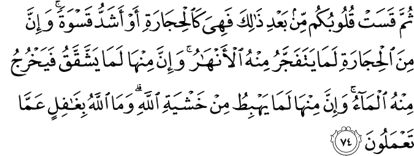



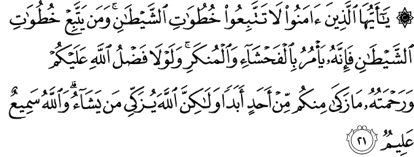

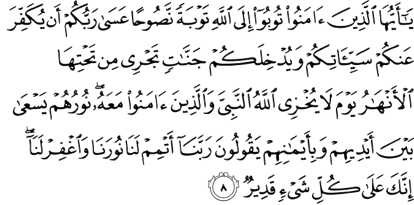



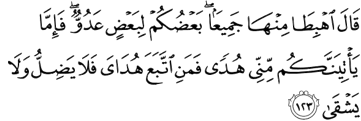


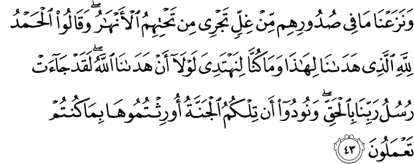
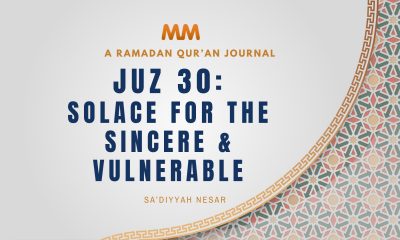
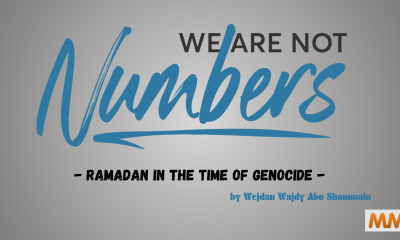

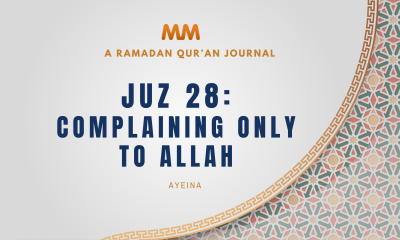


Kanika Aggarwal
August 17, 2011 at 11:39 AM
jazzak Allah khair for this comprehensive article, shaykh. I have only read about half so far. I am taking my time to digest everything that has been mentioned but just wanted to quickly appreciate your efforts in putting this article together.
Yasmin
August 17, 2011 at 1:13 PM
Mashallah, beautiful post! I agree with sister Kanika that this is a truly comprehensive and well-written post. In order to absorb the wealth of information I will definitely have to read it a couple of times, Inshallah! It really inspires the individual to work to purify their heart!
Sadaf Farooqi
August 17, 2011 at 1:48 PM
A most needed post! An absolute gem, masha’Allah.
Truly, our hearts should be our focus of reform and improvement. Everything else stems from the heart.
Jazak Allahu khair katheera, Sheikh.
Sabeen Mansoori
August 17, 2011 at 2:12 PM
Jazakallah Khair Sheikh for a truly beautiful post!
Spiritual development is a steep incline, traversed by the sincere and determined.
May Allah(swt) keep us forever on the path of spiritual development and give us the courage to continue on it even if we slip and fall.
none
August 17, 2011 at 2:37 PM
I really enjoyed the article. Made me reflect on my own inability to deal with Allah’s tests. JazakaAllah khair for the post.
ummMaryam
August 17, 2011 at 11:15 PM
salamu ‘alaikum,
jazak Allah khair. may Allah make us of those who take heed… not of those that this essay testifies against on the day of judgment. ameen.
Sis. Aniqa
August 17, 2011 at 11:22 PM
As-salaamu-wa-alaikum-wa-rahmatullahi-wa-barakatuhu,
May all of your days of Ramadan be beneficial and filled with the blessings of Allah (s.w.t)!
Masha-Allah! This is truly a beneficial and beautifully written article. It made me reflect a lot upon the role that our hearts have on a daily basis. Subhan-Allah!
May Allah (s.w.t) soften and purify our hearts, and refrain from making it hard and filled with disease. Ameen.
abu Abdullah
August 18, 2011 at 1:08 AM
I read something this somewhere, “I am not worried about whether my du’a will be responded to, but rather I am worrried about whether I will be able to make du’a or not. So if I have been guided by Allah to make du’a, then (I know) that the response will come with it” [Umar bin al Khattab radi Allah anhu]
My question is how do we go on setting up a plan for our self to undo the desensitization happened (happening ) because of our environments that we don’t control or is just oft repetative?
May Allah reward you for writing such thought provoking article.
Yahya Ibrahim
August 18, 2011 at 1:42 AM
Bismillah,
Muraaqabah, vigilance is Taqwa. Awareness of who/what/when/where/how things effect you negatively is not difficult to identify. Deep down we all know what’s good & bad..to put it simply.
The danger is ignoring that instinct which commands caution. Eventually that voice of spiritual reason is silenced and drowned out completely by the craving of sin.
In that is the Messenger of Allah’s warning, “If you feel no shyness (undisturbed), then do what you seek.” You no longer hear the warning of your own self, why should you heed others?
Four things become central:
1- Environment
2- friendships
3- worship
4- Private
Be control of your environment. Get out of the car, leave the club, change tutorials, drop a class…whatever it takes for you to keep your obligations to Allah. If your tutorial at University conflicts with Juma…find another one…dont just accept things as they are.
Be careful who your friends are. MUSLIM friends can be worse than non muslim friends. Look at peoples character and conduct and remember you are looking at a “mirrored image.”
Fulfill your worship. Wake for fajr. Wake today, and tomorrow and into the future. make your Zikr. Live righteously. Worship Allah through your help of others.
Use your private time well. If you are prone to errors fill your time and remain in the company of the righteous.
We control much more than we actually care to consider. Allah protect you and I and those who seek righteousness.
Do not despair in Allah’s mercy. If you were to fill this world with error and ask for forgiveness, YOU will be forgiven.
Yahya
http://www.facebook.com/yahya.adel.ibrahim
http://www.twitter.com/yahya_ibrahim
Hena Zuberi
August 18, 2011 at 6:44 AM
Asalam alaykum Shaykh Yahya-
could you tell me more about Muraqabah?
JazakAllah Khayr for writing this- in the middle of Ramadan- I needed this revival.
May what beats in our chest cry out the name of our Rab, yearn for Him as He deserves to be yearned for.
Yahya Ibrahim
August 19, 2011 at 2:11 AM
Bismillah,
Muraqaabah is a station of Ihsan and leads a person through the strengthening of their submission to Allah and unto unwavering certain faith that results in Worshipping Allah as if you are in His presence.
Muraqaabah is to put forward what Allah seeks and push back from what He prohibits. It is to enjoy the worship more than other than it. It is sweetness of Faith that is felt in the chest and palpable on the tongue of the virtues.
It is caution. To live a measured, humble life wherein your departure is sadness to the righteous and joyous to the wicked.
To Love Allah as much as you Fear Him and to love and fear nothing on par with Him.
Muraqabah is witnessed in some but claimed by many.
Allah grant us all success
Yahya
http://www.facebook.com/yahya.adel.ibrahim
abu Abdullah
August 18, 2011 at 2:02 PM
Salamualaikum,
jazak Allah khayr, may Allah accept it. Insh Allah I will try to go that extra mile which I am actually capable of to reclaim my haya’ with Allaah.
We get the gist that we repeat NOT the mistakes we have made, but we forget and do them again anyways. The definition of wisdom given was, beneficial knowledge that is acted upon at right time. How does we gain that ability of Hikmah in one’s speech and action (besides asking in Dua, as Allah says, Yuti Hikmata Man yasha’a)? What are Islamic etiquettes towards it.
Could you please provide Arabic for this dua, I was told by one of salaf Salih.
O Allah! I seek Your forgiveness for that which I sought your repentance but to which I subsequently returned; I seek Your forgiveness from that which I rendered to You from my self, but then, I was not able to maintain faithfully; and, I seek Your forgiveness from that by which I claimed I desired your Face but my heart became corrupted with that which I did
zari
August 18, 2011 at 2:03 AM
Subhanallah, what a humbling article. Ameen to your duas. I felt very, very scared after reading the opening paragraphs; may Allah ta’ala humble our hearts; make our intentions sincere and enable us to increase our good deeds… Ameen.
amad
August 18, 2011 at 2:16 AM
subhanallah, ur articles never cease to amaze me, ya shaykh…
u should seriously consider writing a book that is JUST full of spiritual thoughts… like short stories, random and beautiful… u already have a few on MM that u can put to use! I’ll buy 10-20 copies I promise for all my friends and family :)
tariq
August 18, 2011 at 4:36 AM
May Allah swt guide us all to make this beautiful dua from the innermost recessess of our hearts with total sincerity seeking His Face and the blissful life of the HereAfter “Ya muqallibal qulubi sabbit qalbi ala deenik ” . Oh Turner of hearts keep our hearts steadfast in our religion “
Abu Yusuf
August 18, 2011 at 12:14 PM
Good to hear from br. Yahya. The last time I found some of his inspirational writings was in the mid 90’s. Glad to see he’s back!
Pingback: The effect of music vs. the Quran on an apple | Imagine what it does to your heart « From the Pulpit …
Pingback: Perkaya Hati | A Beautiful Mind